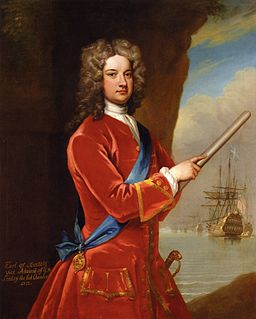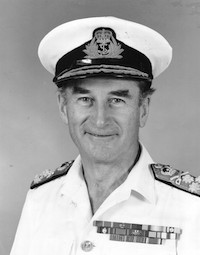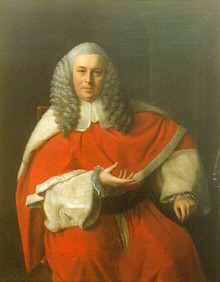Related Research Articles

Vice-Admiral Sir George Strong Nares was a Royal Navy officer and Arctic explorer. He commanded the Challenger Expedition, and the British Arctic Expedition. He was highly thought of as a leader and scientific explorer. In later life he worked for the Board of Trade and as Acting Conservator of the River Mersey.

Alastair Arthur Windsor, 2nd Duke of Connaught and Strathearn was a member of the British Royal Family. He was the only child of Prince Arthur of Connaught and Princess Alexandra, 2nd Duchess of Fife. He was a great-grandson of Queen Victoria through his father and the first great-grandchild of Edward VII through his mother.

William Oliver Studeman is a retired admiral of the United States Navy and former deputy director of the Central Intelligence Agency, with two extended periods as acting Director of Central Intelligence. As deputy director of Central Intelligence, he served in the administrations of George H. W. Bush and Bill Clinton under three directors of Central Intelligence, Robert Gates, R. James Woolsey Jr., and John M. Deutch. Studeman retired from the navy in 1995 after almost 35 years of service. Between 1988 and 1992 he was director of the National Security Agency; he was the Director of Naval Intelligence, from September 1985 to July 1988.
Baron Bruntisfield, of Boroughmuir in the City of Edinburgh, is a title in the Peerage of the United Kingdom. It was created in 1942 for the Scottish Conservative politician and former Vice-Chamberlain of the Household, Sir Victor Warrender, 8th Baronet. The Warrender family descends from George Warrender. He was Lord Provost of Edinburgh and represented Edinburgh in Parliament. In 1715 he was created a baronet, of Lochend in the County of Haddington, in the Baronetage of Great Britain. His grandson, the third Baronet, fought at the Battle of Minden in 1759, represented Haddington Burghs in the House of Commons and served as King’s Remembrancer of the Court of Exchequer from 1771 to 1791. He was succeeded by his son, the fourth Baronet. He sat as a Member of Parliament for Haddington Burghs, Truro, Sandwich, Westbury and Honiton and notably served as a Lord of the Admiralty from 1812 to 1812. In 1822 Warrender was admitted to the Privy Council. On his death the title passed to his younger brother, the fifth Baronet. His grandson, the seventh Baronet, was a Vice Admiral in the Royal Navy. He was succeeded by his son, the eighth Baronet, who was raised to the peerage as Baron Bruntisfield, of Boroughmuir in the City of Edinburgh, in 1942. As of 2010 the titles are held by the latter's grandson, the third Baron, who succeeded in 2007. He is a retired officer in the British Army and investment banker.

Admiral of the Fleet Sir George Cockburn, 10th Baronet, was a Royal Navy officer. As a captain he was present at the Battle of Cape St Vincent in February 1797 during the French Revolutionary Wars and commanded the naval support at the reduction of Martinique in February 1809 during the Napoleonic Wars. He also directed the capture and Burning of Washington on 24 August 1814 as an advisor to Major General Robert Ross during the War of 1812. He went on to be First Naval Lord and in that capacity sought to improve the standards of gunnery in the fleet, forming a gunnery school at Portsmouth; later he ensured that the Navy had the latest steam and screw technology and put emphasis on the ability to manage seamen without the need to resort to physical punishment.

Admiral of the Fleet Sir James Fownes Somerville, was a Royal Navy officer. He served in the First World War as fleet wireless officer for the Mediterranean Fleet where he was involved in providing naval support for the Gallipoli Campaign. He also served in the Second World War as commander of the newly formed Force H: after the French armistice with Germany, Winston Churchill gave Somerville and Force H the task of neutralizing the main element of the French battle fleet, then at Mers El Kébir in Algeria. After he had destroyed the French Battle fleet, Somerville played an important role in the pursuit and sinking of the German battleship Bismarck.

Admiral of the Fleet Terence Thornton Lewin, Baron Lewin, was a Royal Navy officer. He served in the Second World War and then commanded a destroyer, the Royal yacht, two frigates and an aircraft carrier before achieving higher command. He was First Sea Lord and Chief of the Naval Staff in the late 1970s and in that role he worked hard to secure a decent wage for servicemen and helped win them a 32% pay rise. He went on to be Chief of the Defence Staff during the Falklands War, serving as chief war planner and as Prime Minister Margaret Thatcher's chief advisor during the war. He was also the first Chief of Defence Staff to act as head of the Armed Forces rather than just Chairman of the Chiefs of Staff Committee.

Vice-Admiral James Berkeley, 3rd Earl of Berkeley, was the son of Charles Berkeley, 2nd Earl of Berkeley and the Hon. Elizabeth Noel. He was known by the courtesy title of Viscount Dursley prior to succeeding as Earl of Berkeley in 1710. He was a distinguished Royal Navy officer who served as First Lord of the Admiralty during the reign of King George I.
Marketing Week is a website focused on the marketing industry, based in London, that grew out of what was a weekly, and latterly monthly, print magazine.

Admiral Sir Anthony Monckton Synnot, was a senior officer in the Royal Australian Navy, who served as Chief of the Defence Force Staff from 1979 to 1982.

John Roundell Palmer, 4th Earl of Selborne,, was a British peer, ecological expert, and businessman. He was one of the hereditary peers elected to remain in the House of Lords after the enactment of the House of Lords Act 1999, sitting as a Conservative. He re-designated as non-affiliated in September 2019 and retired from the House on 26 March 2020.

HMS Centaur was a 74-gun third rate of the Royal Navy, launched on 14 March 1797 at Woolwich. She served as Sir Samuel Hood's flagship in the Leeward Islands and the Channel. During her 22-year career Centaur saw action in the Mediterranean, the Channel, the West Indies, and the Baltic, fighting the French, the Dutch, the Danes, and the Russians. She was broken up in 1819.

Vice-Admiral Sir George John Scott Warrender of Lochend, 7th Baronet, was a senior officer in the Royal Navy during the First World War.

Vice-Admiral Sir Henry Loraine Baker, 2nd Baronet CB was an officer of the British Royal Navy who served during the French Revolutionary and Napoleonic Wars against France and her allies, and also in the War of 1812 against the United States.

Vice Admiral Sir Henry Mackay Burrell, was a senior commander in the Royal Australian Navy (RAN). He served as Chief of the Naval Staff (CNS) from 1959 to 1962. Born in the Blue Mountains, Burrell entered the Royal Australian Naval College in 1918 as a 13-year-old cadet. His first posting at sea was aboard the cruiser HMAS Sydney. During the 1920s and 1930s, Burrell served for several years on exchange with the Royal Navy, specialising as a navigator. During World War II, he filled a key liaison post with the US Navy, and later saw action as commander of the destroyer HMAS Norman, earning a mention in despatches.
Admiral Sir Lewis Anthony Beaumont, was a Royal Navy officer who served as Commander-in-Chief, Plymouth.
The New Year Honours 1987 were appointments by most of the Commonwealth realms of Queen Elizabeth II to various orders and honours to reward and highlight good works by citizens of those countries, and honorary ones to citizens of other countries. They were announced on 31 December 1986 to celebrate the year passed and mark the beginning of 1987 in the United Kingdom, Australia, New Zealand, Barbados, Mauritius, Fiji, Grenada, Papua New Guinea, Tuvalu, St Lucia, St Vincent & The Grenadines, Belize, Antigua & Barbuda, and St Christopher & Nevis.

Sir George Nares (1716–1786) was an English barrister, judge, and politician.

Commodore Submarine Service is a post in the Royal Navy which involves command of the Royal Navy Submarine Service. It evolved from the post of Inspecting Captain of Submarines in 1901 and would later evolve to become the post of Flag Officer Submarines in 1944.

The Admiral Commanding, Reserves, was a senior Royal Navy post that existed from 1875 to 1976.
References
- 1 2 3 4 5 "Obituary: Anthony Nares" . Independent.co.uk . 24 February 1996. Archived from the original on 7 May 2022.
- ↑ "Anthony James NARES - Personal Appointments (free information from Companies House)".
- 1 2 "Alastair Nares 1912".
- ↑ "John D Nares 1877".
- ↑ Week, Marketing (23 February 1996). "Anthony Nares, managing director, Centaur Comms".